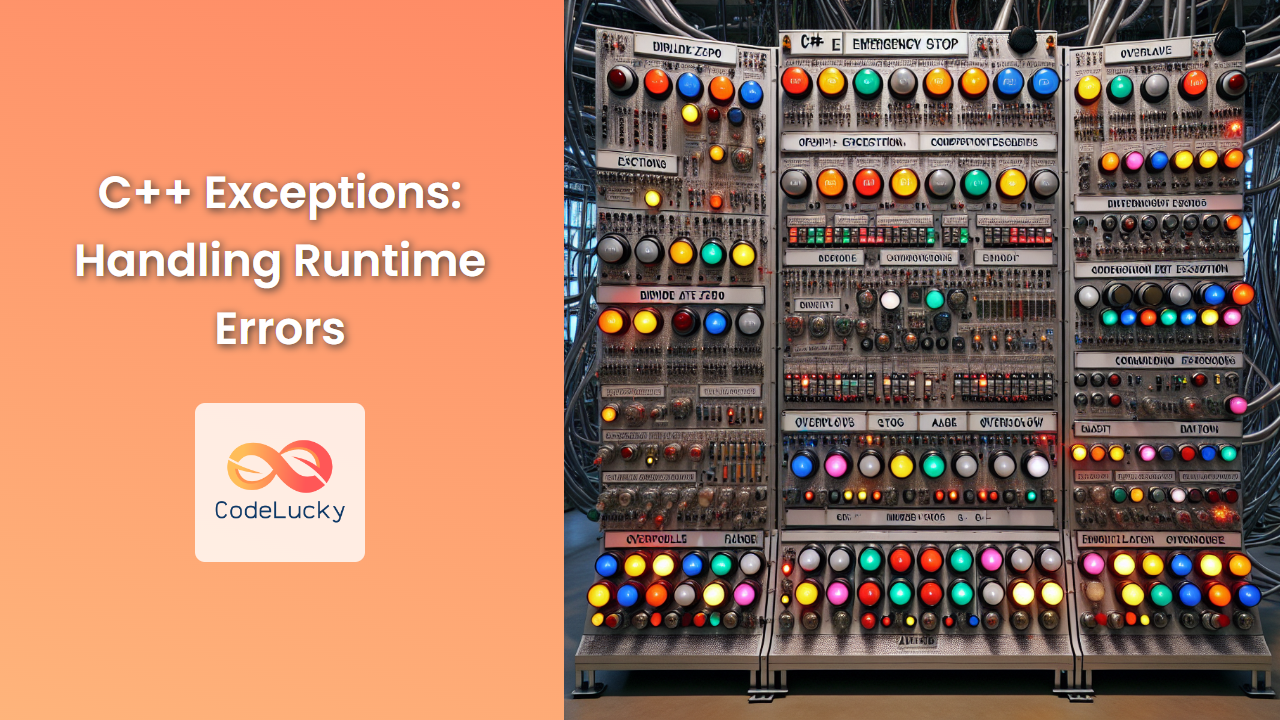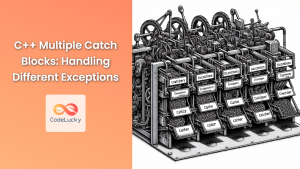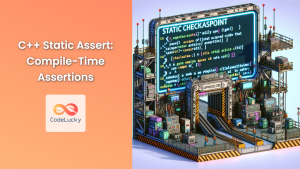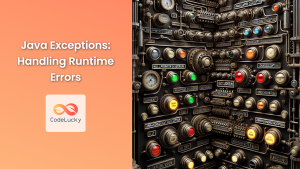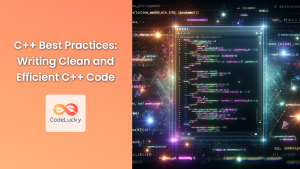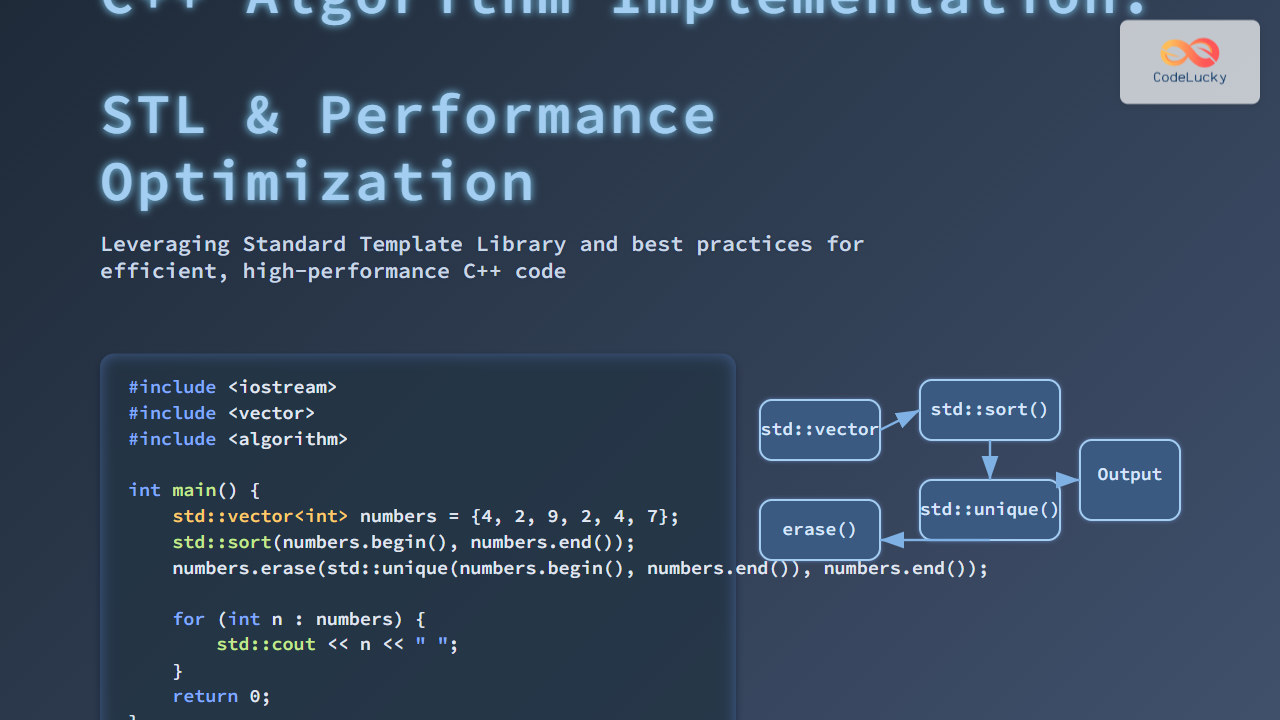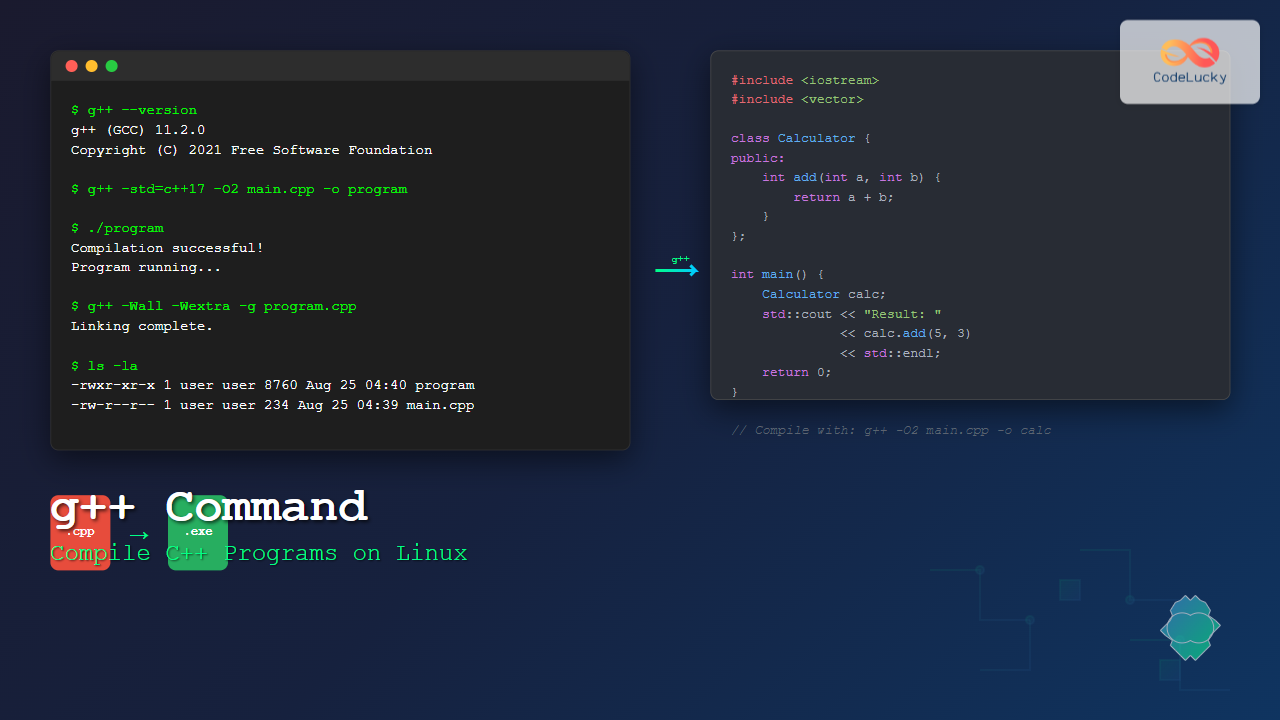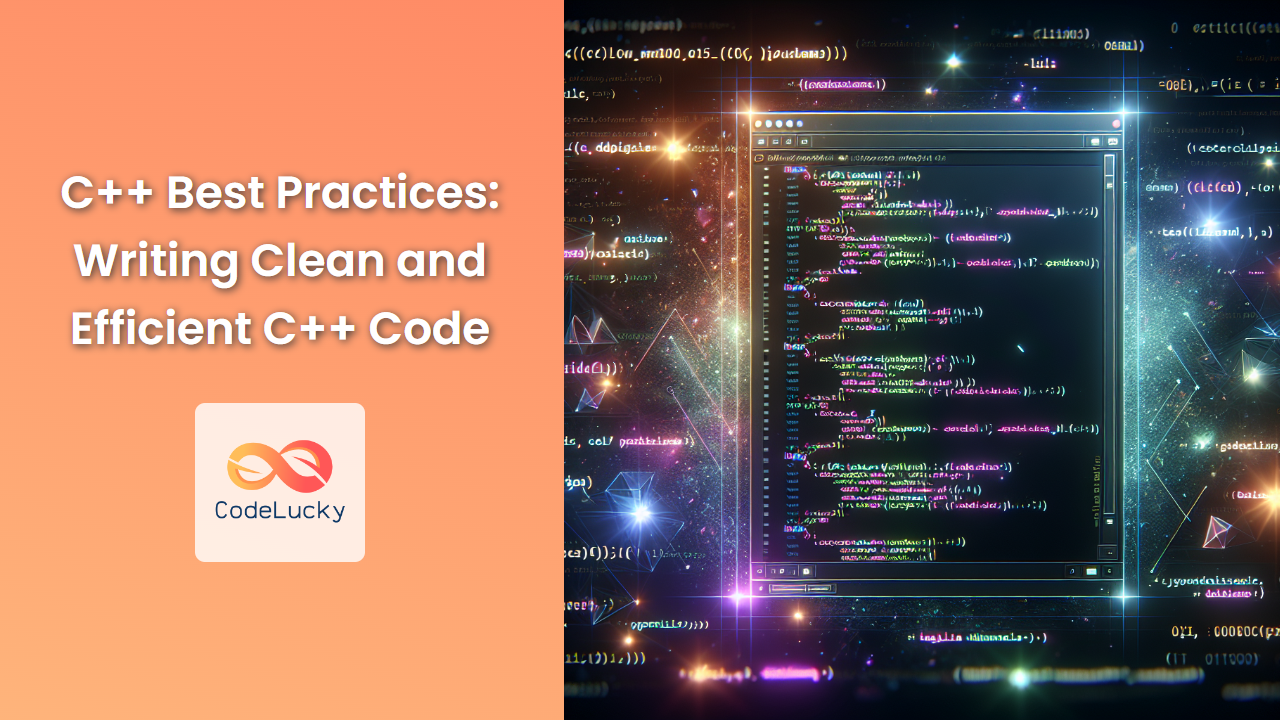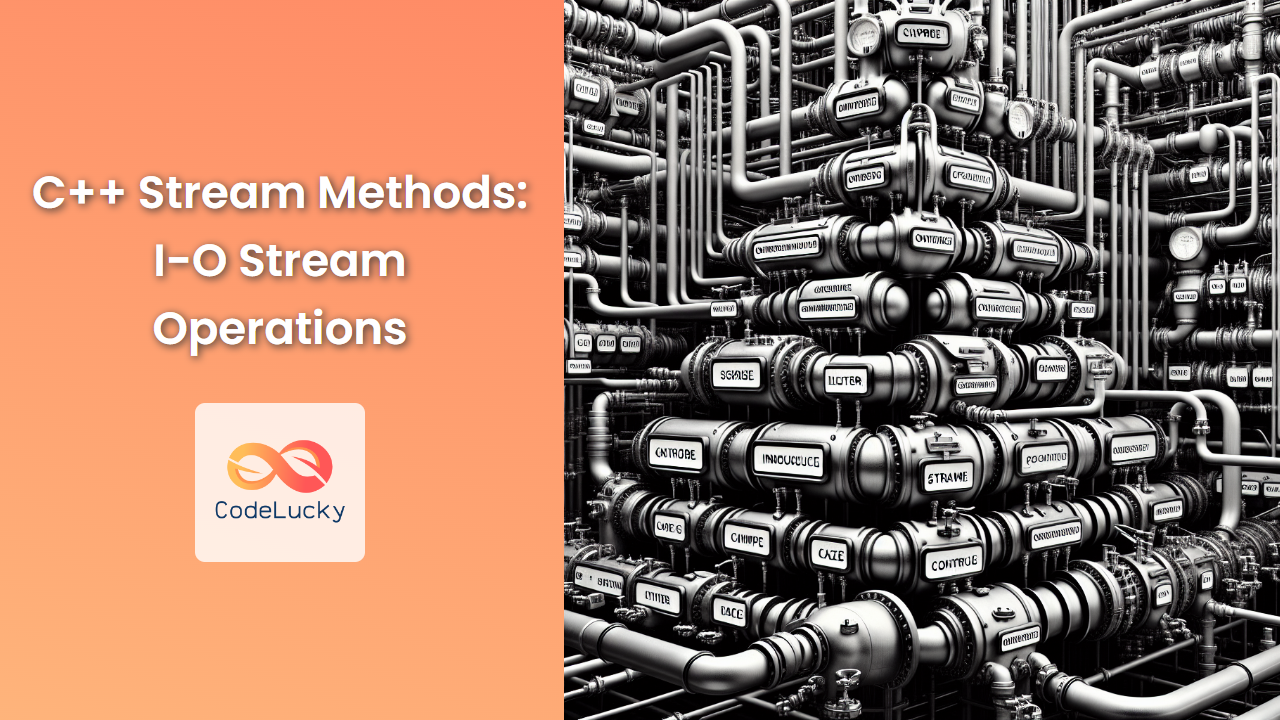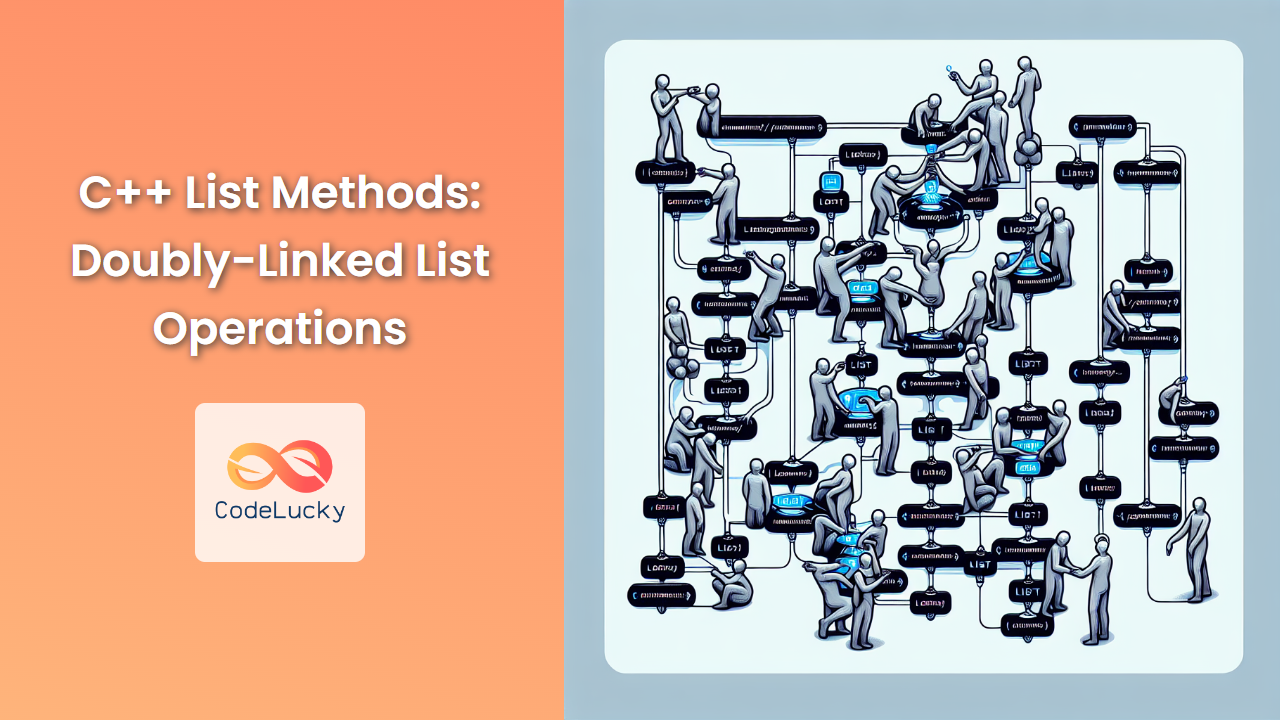In the world of C++ programming, errors are an inevitable part of the development process. While compile-time errors can be caught and fixed before your program runs, runtime errors pose a different challenge. This is where C++ exceptions come into play, offering a powerful mechanism for handling unexpected situations and maintaining program stability.
Understanding C++ Exceptions
C++ exceptions provide a structured and object-oriented approach to error handling. They allow you to separate error-handling code from your regular code, making your programs more readable and maintainable.
🔑 Key Concept: An exception is an object that represents an error condition or an unexpected event that occurs during the execution of a program.
When an exceptional situation arises, the program "throws" an exception. This exception can then be "caught" and handled in a separate part of the code, allowing the program to respond appropriately to the error.
The Anatomy of Exception Handling
Exception handling in C++ involves three key components:
tryblock: Contains the code that might throw an exceptionthrowstatement: Used to throw an exception when a problem occurscatchblock: Catches and handles the exception
Let's look at a basic example to illustrate these components:
#include <iostream>
#include <stdexcept>
int divide(int a, int b) {
if (b == 0) {
throw std::runtime_error("Division by zero!");
}
return a / b;
}
int main() {
try {
std::cout << divide(10, 2) << std::endl; // This will work fine
std::cout << divide(10, 0) << std::endl; // This will throw an exception
}
catch (const std::exception& e) {
std::cerr << "Error: " << e.what() << std::endl;
}
return 0;
}
Output:
5
Error: Division by zero!
In this example, the divide function throws a std::runtime_error exception when attempting to divide by zero. The main function catches this exception and prints the error message.
Standard C++ Exceptions
C++ provides a hierarchy of standard exception classes, all derived from the base class std::exception. Here are some commonly used exception classes:
| Exception Class | Description |
|---|---|
std::runtime_error |
Runtime logic errors |
std::logic_error |
Logic errors that could be detected at compile time |
std::out_of_range |
Index out of range |
std::invalid_argument |
Invalid argument passed to a function |
std::bad_alloc |
Memory allocation failure |
Let's see how we can use these different exception types:
#include <iostream>
#include <stdexcept>
#include <vector>
void demonstrate_exceptions() {
std::vector<int> vec = {1, 2, 3};
try {
// Attempting to access an out-of-range index
std::cout << vec.at(5) << std::endl;
}
catch (const std::out_of_range& e) {
std::cerr << "Out of range error: " << e.what() << std::endl;
}
try {
// Attempting to allocate a huge amount of memory
std::vector<int> huge_vec(std::numeric_limits<int>::max());
}
catch (const std::bad_alloc& e) {
std::cerr << "Memory allocation error: " << e.what() << std::endl;
}
try {
// Throwing a custom logic_error
throw std::logic_error("This is a logic error");
}
catch (const std::logic_error& e) {
std::cerr << "Logic error: " << e.what() << std::endl;
}
}
int main() {
demonstrate_exceptions();
return 0;
}
Output:
Out of range error: vector::_M_range_check: __n (which is 5) >= this->size() (which is 3)
Memory allocation error: std::bad_alloc
Logic error: This is a logic error
This example demonstrates how different types of exceptions can be thrown and caught, providing specific error handling for each case.
Creating Custom Exceptions
While the standard exceptions cover many common scenarios, you may sometimes need to create your own exception classes for specific situations in your program.
Here's an example of a custom exception class:
#include <iostream>
#include <stdexcept>
#include <string>
class NetworkError : public std::runtime_error {
public:
NetworkError(const std::string& message) : std::runtime_error(message) {}
};
void connect_to_server(const std::string& server) {
if (server.empty()) {
throw NetworkError("Empty server address");
}
if (server == "unreachable.com") {
throw NetworkError("Server unreachable");
}
std::cout << "Connected to " << server << std::endl;
}
int main() {
try {
connect_to_server("example.com");
connect_to_server("");
connect_to_server("unreachable.com");
}
catch (const NetworkError& e) {
std::cerr << "Network error: " << e.what() << std::endl;
}
return 0;
}
Output:
Connected to example.com
Network error: Empty server address
In this example, we've created a custom NetworkError exception class that inherits from std::runtime_error. This allows us to throw more specific exceptions related to network operations.
Exception Specifications and noexcept
In C++, you can specify which exceptions a function might throw using exception specifications. However, these are deprecated in modern C++. Instead, you can use the noexcept specifier to indicate that a function doesn't throw exceptions:
double safe_sqrt(double x) noexcept {
return (x >= 0) ? std::sqrt(x) : 0;
}
The noexcept specifier is particularly useful for optimization purposes and in defining move constructors and move assignment operators.
Best Practices for Exception Handling
Here are some best practices to keep in mind when using exceptions in C++:
- 🛡️ Use exceptions for exceptional circumstances, not for normal flow control.
- 🧹 Clean up resources properly by using RAII (Resource Acquisition Is Initialization) or smart pointers.
- 🎯 Catch exceptions by const reference to avoid slicing and unnecessary copying.
- 🔍 Be specific in what you catch. Catch the most specific exceptions first.
- 📝 Provide informative error messages in your exceptions.
Let's see these practices in action:
#include <iostream>
#include <memory>
#include <stdexcept>
#include <vector>
class Resource {
public:
Resource(int id) : id_(id) {
std::cout << "Resource " << id_ << " acquired" << std::endl;
}
~Resource() {
std::cout << "Resource " << id_ << " released" << std::endl;
}
private:
int id_;
};
void process_data(const std::vector<int>& data) {
if (data.empty()) {
throw std::invalid_argument("Empty data set");
}
// Use RAII for resource management
auto resource = std::make_unique<Resource>(1);
for (int value : data) {
if (value < 0) {
throw std::domain_error("Negative value encountered: " + std::to_string(value));
}
// Process data...
}
std::cout << "Data processed successfully" << std::endl;
}
int main() {
try {
process_data({1, 2, 3, 4, 5});
process_data({});
process_data({1, 2, -3, 4, 5});
}
catch (const std::invalid_argument& e) {
std::cerr << "Invalid argument: " << e.what() << std::endl;
}
catch (const std::domain_error& e) {
std::cerr << "Domain error: " << e.what() << std::endl;
}
catch (const std::exception& e) {
std::cerr << "Unexpected error: " << e.what() << std::endl;
}
return 0;
}
Output:
Resource 1 acquired
Data processed successfully
Resource 1 released
Invalid argument: Empty data set
Resource 1 acquired
Domain error: Negative value encountered: -3
Resource 1 released
This example demonstrates several best practices:
- We use exceptions for truly exceptional circumstances (empty data set, negative values).
- Resource management is handled using RAII (with
std::unique_ptr). - Exceptions are caught by const reference.
- We catch specific exceptions first, with a catch-all
std::exceptionat the end. - Our exceptions provide informative error messages.
Performance Considerations
While exceptions provide a powerful mechanism for error handling, they do come with some performance overhead. Here are a few points to consider:
- 🚀 The cost of setting up try-catch blocks is minimal if no exception is thrown.
- ⏱️ Throwing and catching an exception can be significantly slower than normal code execution.
- 📊 Exception handling can increase the size of your executable.
For performance-critical code, you might consider alternative error handling methods, such as error codes or std::optional, depending on the specific requirements of your application.
Conclusion
Exception handling is a crucial aspect of writing robust C++ programs. By effectively using try-catch blocks, throwing appropriate exceptions, and following best practices, you can create more reliable and maintainable code.
Remember, the goal of exception handling is not just to prevent your program from crashing, but to gracefully handle unexpected situations and provide meaningful feedback to users or logging systems.
As you continue to develop in C++, you'll encounter many situations where exception handling can significantly improve your code's reliability and user experience. Practice using exceptions in your projects, and you'll soon find them an indispensable tool in your C++ programming toolkit.

